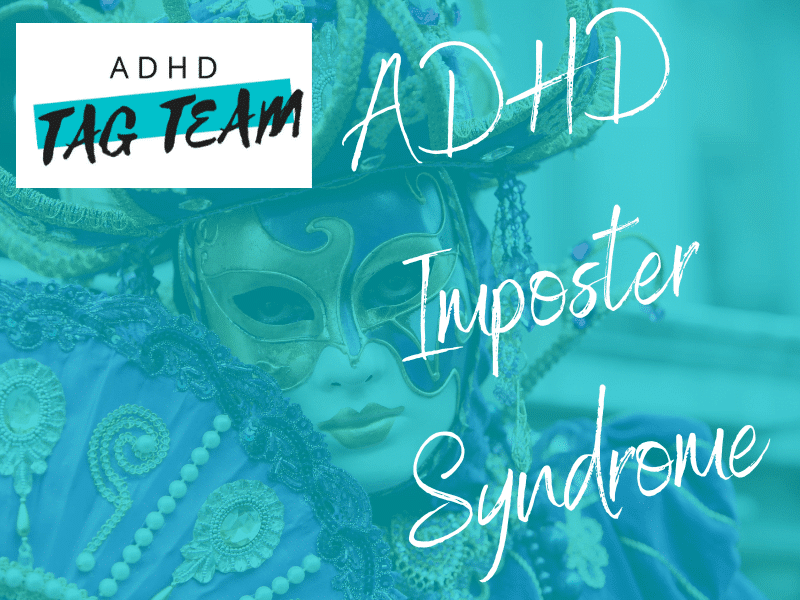ADHD Imposter Syndrome is a feeling of self-doubt that affects many people with ADHD. Despite evidence of their accomplishments, they often feel like frauds, as if they don’t deserve their success. This can lead to a constant sense of anxiety, stress, and a fear of being found out. For people with ADHD, imposter syndrome can be even more pronounced, as they may struggle with executive function skills and self-esteem issues.
The good news is that ADHD imposter syndrome is a common experience, and there are strategies to help you overcome it.
Here are some tips that can help people with ADHD manage imposter syndrome and build confidence in their abilities:
- Reframe negative self-talk: People with ADHD often have a negative inner voice that tells them they are not good enough. Reframing this self-talk can help shift your focus from your perceived weaknesses to your strengths. Practicing positive affirmations can help reinforce a more positive mindset, also.
- Practice self-care: Taking care of your physical, emotional, and mental well-being is important for maintaining a healthy sense of self-worth. Make sure you are getting enough sleep, eating well, and engaging in activities that bring you joy.
- Connect with others: Talking to others about your imposter syndrome can help you realize that you are not alone. Joining a support group for people with ADHD can provide a sense of community and help you feel less isolated. Having a support system in place can provide encouragement and a sounding board for your thoughts and feelings, helping you see that you are not alone in your struggles with imposter syndrome and ADHD.
- Create a list of your accomplishments: Writing down your accomplishments, no matter how small, can help you see that you have indeed achieved something. Keeping this list visible can help boost your confidence and counter negative self-talk. Regularly updating the list can help you track your growth and see how far you have come in overcoming imposter syndrome.
- Seek professional help: If you find that your imposter syndrome is affecting your daily life, consider seeking the help of a therapist or coach. They can help you develop strategies to overcome imposter syndrome and build self-esteem.
- Partner with a Virtual Assistant Specialized in ADHD: Working with a virtual assistant who specializes in helping people with ADHD can provide an extra layer of support and accountability as you navigate imposter syndrome. Your virtual assistant can help you stay organized, prioritize tasks, and maintain a positive outlook, all while understanding the unique challenges of ADHD. Having a trusted partner to rely on can help you feel more confident and capable, and can be a valuable resource as you work to overcome imposter syndrome.
ADHD imposter syndrome can be a major barrier to success and happiness. But with the right strategies and support, it is possible to overcome these feelings of self-doubt and build confidence in your abilities.
Are you tired of feeling like battling imposter syndrome and ready to take control (and enjoy) of your life? ADHDTagTeam specializes in helping people with ADHD overcome imposter syndrome and build confidence by providing virtual assistant services, creating systems, and streamlining your life. Take the first step towards a more confident and fulfilling life by partnering with ADHDTagTeam virtual assistant and let us help you overcome the challenges of ADHD and imposter syndrome together.
We offer a free discovery call to learn more about you and your specific challenges. During the call, we will work with you to create a custom solution that addresses your unique needs. Don’t let imposter syndrome hold you back any longer. Schedule your discovery call today and take the first step towards a more confident, fulfilling life.

